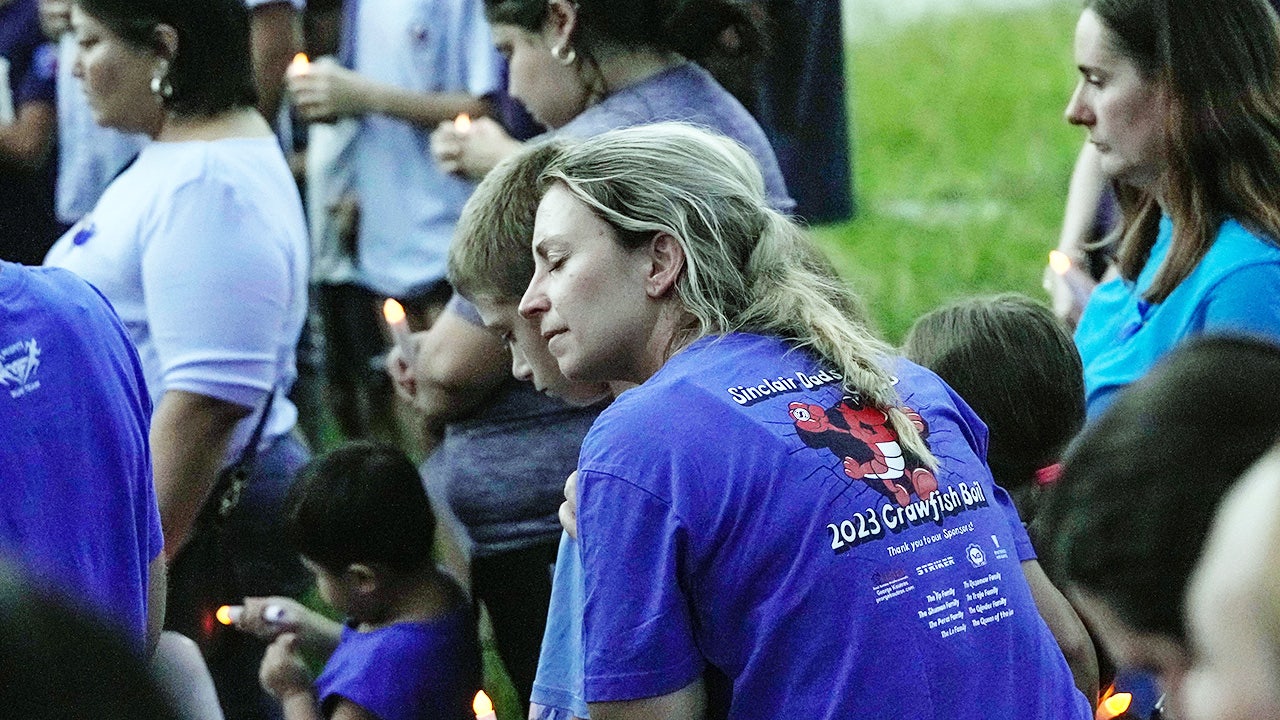
NEWYou can now listen to Fox News articles!
Record-breaking floods inundated Texas, submerging homes, displacing families, killing at least 100 people and prompting widespread evacuations.
Natural disasters often shake our deepest beliefs. It’s only human to cry out and ask why would a loving God allow such unrelenting suffering. Especially when it comes, not through human cruelty and free will, but from the forces of creation itself.
But paradoxically, it’s that same faith that many rely on in the aftermath. Far from being a crutch, faith often becomes a critical lifeline, helping people cope, recover and rebuild.
Parents, students, school faculty and community members come together at Sinclair Elementary for a vigil in honor of the missing student Greta Toranzo, who attended Camp Mystic and was among the missing after catastrophic flooding, on Saturday, July 5, 2025, in Houston. (Raquel Natalicchio/Houston Chronicle via Getty Images)
Online, others shift the blame to politics. During the flood, a version of Elon Musk’s AI chatbot blamed budget cuts to NOAA for the rising death toll. Some point to Texas’ energy policies or “Mother Nature’s revenge.”
AMERICA IS REDISCOVERING ITS SOUL AND REVIVING THE SACRED
These reactions mirror old religious blame – just with new villains. Same fire-and-brimstone tone. Same absence of comfort. It may offer outrage, but it rarely offers comfort. And it certainly doesn’t help the displaced rebuild.
Science backs this up. A study on survivors of the 2004 Indian Ocean tsunami found that “religious faith and practices” and “cultural traditions” significantly aided emotional recovery. In fact, the loss of faith itself was linked to worsened trauma.
As the researchers concluded, stripping away that spiritual framework left individuals without a “culturally rooted means of making sense of misfortune” – compounding their suffering instead of alleviating it.
I’ve seen this up close. My brother Asher is a Chabad rabbi on the island of St. Thomas. During Hurricane Irma, he sheltered in a medical building with his kids as 185 mph winds snapped telephone poles and tossed trees like tumbleweed. A metal roof from a nearby resort crashed into their home. By all accounts, it was apocalyptic.
CLICK HERE FOR MORE FOX NEWS OPINION
They survived. But much of the island’s infrastructure did not. He spent days providing food, generators and spiritual support to the displaced. And over and over, he saw the same thing: faith not just as comfort, but as fuel. A force that allows people to keep going, even when everything else has washed away.
This isn’t unique. After Hurricanes Harvey, Irma, Maria, Dorian, Ida, Ian and now the latest flooding in Texas, faith-based organizations are often the first on the ground. Groups like the United Methodist Church, the Southern Baptist Convention, various Catholic Charities of Southeast Texas, and Chabad’s disaster relief fund don’t just pray, they mobilize.
USA Today once correctly described these religious groups as “integral partners in state and federal disaster relief efforts.”
CLICK HERE TO GET THE FOX NEWS APP
That doesn’t mean you need religion to cope with trauma. Non-religious people find strength in community, love and meaning too. But faith offers a distinct framework – a spiritual map that helps people find direction when the terrain has suddenly collapsed. For some, belief in a higher purpose can be the difference between despair and resilience.
As Texans confront this catastrophe, many will draw strength not from outrage or blame, but from faith. We will never understand why – but faith gives us the tools to endure it. Politics points fingers. Faith extends a hand.
